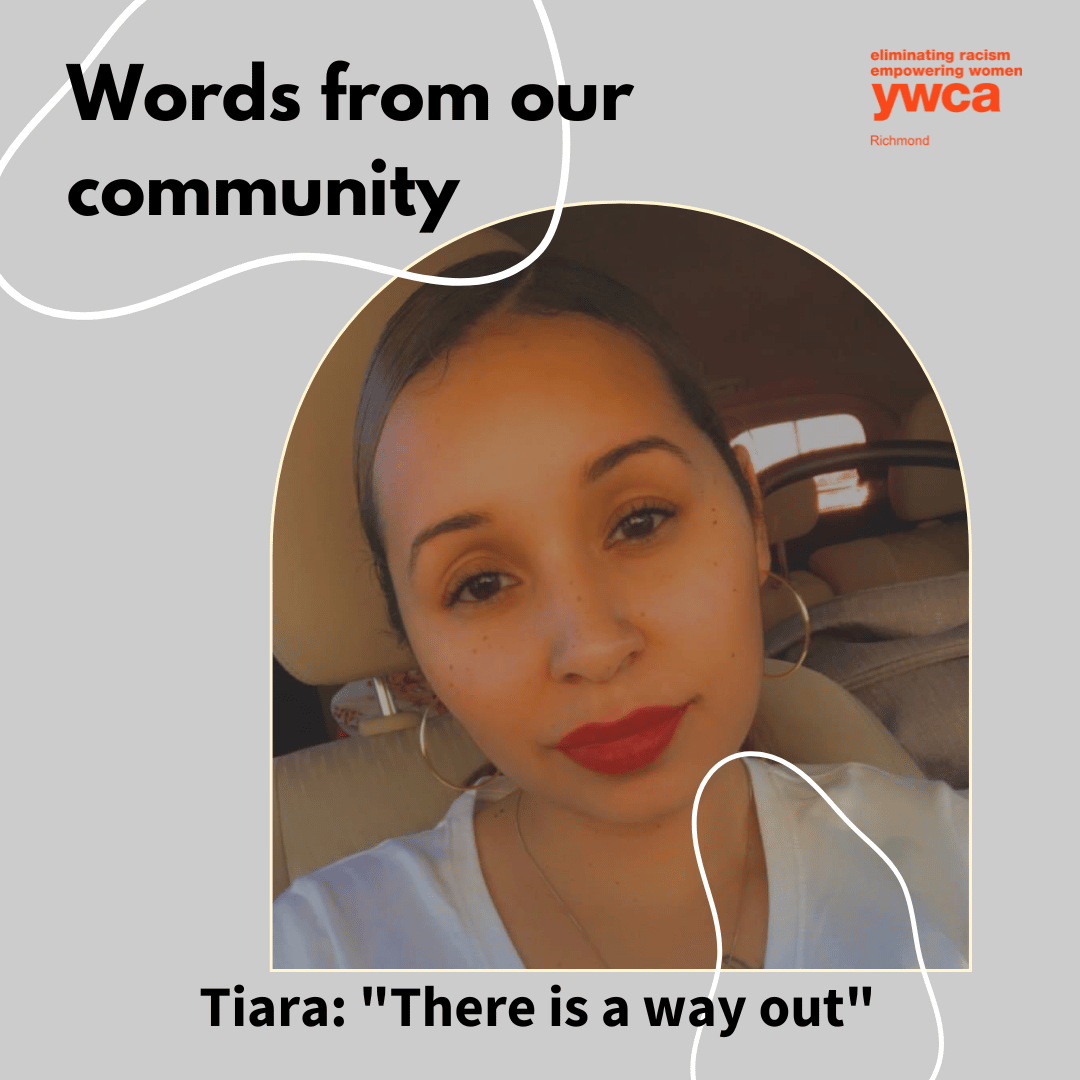
Domestic and sexual violence is a pervasive public health crisis in our community. From gun violence to abortion access restrictions to anti-LGBTQ+ laws to the rising wave of hate and violence, some of the region’s most difficult issues directly impact the safety and well-being of survivors in complex and especially harmful ways.
As clinicians, case managers, and advocates who work directly with survivors, we see that too often these complex impacts are unknown, overlooked, or actively ignored – leaving many survivors unsupported in their efforts to find safety and the pathways toward healing and freedom from further violence. At YWCA Richmond, we work alongside survivors to ensure their voices and needs are addressed. Here is one of the many stories of centering survivor care:
The night my friend suggested I call the YWCA, I was sitting on my floor with my bedroom door locked holding my kids. My sister used to say, “You’ll feel it inside when you’re done.” I didn’t know if I was done, but I knew that I was scared. I didn’t have family to turn to for help and my kid’s father kept telling me that he was all that I had: at the time I believed him. I knew I needed help, so I listened to my friend and I called the YWCA. I wasn’t sure if things were bad enough and I didn’t know what I would say if anyone answered, so I hung up. It would be another month before I called back and started the process of breaking away from him. My kids could not grow up thinking this was okay.
When I called the YWCA and told them what I was going through, they immediately offered me resources. They offered to put the kids and I up in a hotel that night. They offered to assist me with moving expenses; therapy sessions and a housing loan. I accepted assistance with paying off an eviction and I started therapy with the YWCA about two weeks after I called.
I did my therapy sessions at work so I didn’t have to be at home: it felt safer. I looked forward to therapy every week: I depended on it. My therapy sessions were my outlet. I wasn’t just talking to a stranger that didn’t know my situation because I clicked with my therapist. She was my family after a while. My therapist suggested I get a restraining order but I had done that before and it didn’t keep him from stalking me at work and around our neighborhood.
She said, “But you didn’t have us before. You didn’t have us to defend you.” Sometimes what she said to me would go in one ear and out the other, but I needed her to keep pushing me. I still wasn’t ready to leave, but when my kid’s father threatened to kill me, I listened to her and finally got another restraining order against him.
My fight isn’t over yet and sometimes when I get ahead, I get pushed back. I don’t know how things will end, but I do know that I don’t want this for my kids; I don’t want them thinking it’s normal. If I hadn’t reached out to the YWCA I would still be with him. If I didn’t have that push from therapy or that extra guidance and knowledge, I would still be in the same situation. I didn’t realize how much I needed that support.
Last year, I had a friend that passed away from domestic violence. When I heard, I immediately thought that could have been me. There were signs that the system failed her and I wondered if she had reached out to the YWCA if that would have saved her life. I know there are women out here that are scared like me. There are women out here who feel stuck. They don’t have family or their partner makes them feel like they have nobody but them and I just want other women and men to know that there is a way out. The YWCA had so many resources available to help me. My friend really saved my life when she gave me this information. I need people to know that there is a way out.
We witness the daily resilience of survivors in our community, yet we need to build a region in which survivors are fully supported, domestic violence is never tolerated, and all people can live free from the fear of violence. To build a community that protects survivors and ends all forms of gender-based violence, we must address the challenges survivors face as it relates to economic security, access to affordable housing, and investments in violence prevention services.
*This story is told by Tiara in collaboration with Kisha Hughes, a Richmond writer, storycrafter, and space holder. Kisha specializes in helping people tell their stories their way. You can find her at www.kishahughes.com.
